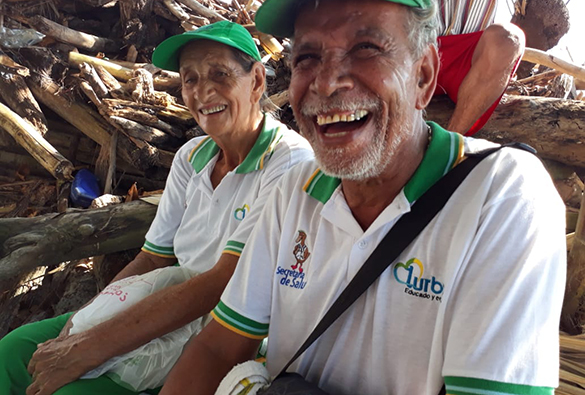Study of the mental health of older adults in Colombia
Many older adults living in Colombia are facing difficulties at the moment due to the COVID-19 pandemic. As a result of public health restrictions, their income is reduced, as most older adults do not have a pension and are reliant on working into old age to support themselves.

But Colombia has faced other issues in the past, including la violencia and other political stressful life events. La violencia was a ten-year civil war in this South American country from 1948 to 1958, which was mainly taking place in the Colombian countryside. One region of Colombia which has very high levels of people affected by armed conflict is Antioquia. In the region as a whole, which includes Medellin, 78.6% (so 413,397 of 525,685 residents) have been registered as victims of armed conflict in 2020.
Through in COVID-19 into the mix, and the mental health of older Colombians (aged 60+) is likely to be affected quite severely. However, we do not know yet to what extent these different stressful life events are impacting on the mental health of older Colombians. This is really important to understand though to help older adults live a good quality life.
That’s why, after being lucky enough to receive funding from the Economic and Social Research Council and the Newton Fund (https://news.liverpool.ac.uk/2020/12/07/supporting-older-adults-mental-health-in-conflict-riven-regions-of-colombia/), we will be starting a 3-year project in February 2021, exploring the impact of stressful life events on the mental health of older Colombians.
As part of this project, we will be conducting a mixed-methods study conducting both interviews and focus groups with older adults and health care professionals, as well as conduct a quantitative needs assessment of older Colombians. In the UK, we will also be conducting a systematic review on the efficacy of mental health interventions in low- and middle-income countries (LMICs) and conduct virtual interviews with experts in LMIC interventions. All these findings will flow into developing and testing a community-based mental health intervention in the area of Turbo, a specific rural area within Antioquia.
But we won’t just think of the intervention ourselves. We will be co-producing the intervention with older adults, local government representative, and health care professionals within the communities. This will ensure that the intervention really takes into account the local and cultural aspects.
Our colleagues at the University of Antioquia have already started the project, and here in the UK we will be starting the project officially in February, although we are already preparing behind the scenes so to say.
It is going to be an incredibly interesting project, where both teams – the Colombian and the UK team (us) – can learn a lot from one another. Stay tuned as we are regularly updating our project webpage, and will be reporting about the progress of the project.
Clarissa Giebel
Research Fellow
ARC NWC
Find out more about the project as it becomes available on the project’s landing page